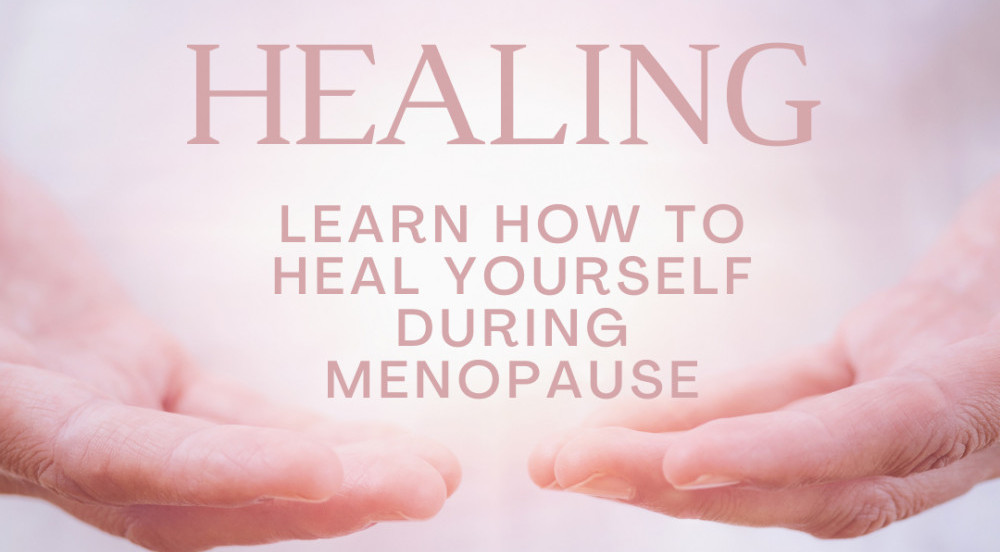
Perimenopause is a transitional period in a woman’s life, where her body undergoes significant hormonal changes in preparation for menopause. This stage typically begins in a woman’s 40s but can start as early as the late 30s and can last anywhere from a few months to several years. During this time, women may experience a wide range of physical, emotional, and psychological symptoms, including hot flashes, night sweats, mood swings, anxiety, and depression.
While perimenopause is a natural process, it can be complicated by mood swings during menopause and be from past traumas, such as childhood abuse, sexual assault, or domestic violence. Trauma can have a profound impact on a woman’s mental and physical health, and these effects can be amplified during perimenopause. In this post, we’ll explore how past trauma can affect women during perimenopause and what steps women can take to manage these effects.
Hormonal Imbalance
One of the primary ways past trauma can affect women during perimenopause is by causing hormonal imbalances. Trauma can affect the hypothalamic-pituitary-adrenal (HPA) axis, which regulates the body’s stress response and the production of hormones such as cortisol and adrenaline. When the HPA axis is dysregulated due to trauma, it can lead to imbalances in other hormones, including estrogen, progesterone, and testosterone.
Hormonal imbalances during perimenopause can exacerbate physical symptoms such as hot flashes and night sweats, as well as emotional symptoms such as anxiety and depression. Additionally, hormonal imbalances can increase the risk of developing health conditions such as osteoporosis, heart disease, and dementia.
I see a lot of women who are stressed to the max, can’t sleep, and can see no end to this. Are feeling totally overwhelmed.
Please remember that we don’t need the same amount of estrogen and progesterone that we did when we were in our reproductive years. It is also important to note that not all of you will need or want to use HRT to manage symptoms of perimenopause. A few simple lifestyle changes such as maintaining a healthy diet, getting regular exercise, managing stress, and getting enough sleep can all help support hormonal balance and alleviate symptoms.
Increased Stress
Perimenopause can be a stressful time for many women, as they navigate the physical and emotional changes associated with this transition. For women who have experienced past trauma, perimenopause can be even more challenging. Trauma can cause a heightened stress response, leading to increased cortisol levels and chronic inflammation.
This chronic stress can exacerbate physical symptoms of perimenopause, such as hot flashes and night sweats, and increase the risk of developing health conditions such as heart disease and diabetes.
Chronic stress can worsen emotional symptoms such as anxiety and depression, making it difficult for women to cope with the challenges of perimenopause.
I’ve had ladies who tell me they feel like they are having a heart attack, or their body shakes so violently they don’t know what the hell is going on. Have been waking up in the middle of the night and have had a panic attack.
Here is a simple tip to help you – When we’re stressed, our breathing tends to become shallow and rapid, which can further contribute to feelings of anxiety and tension.
Deep breathing exercises can help counteract this by slowing down the breath and activating the body’s relaxation response. To practice deep breathing, find a quiet and comfortable place to sit or lie down. Close your eyes and take a slow, deep breath in through your nose, filling your lungs completely. Hold your breath for a few seconds, then slowly exhale through your mouth, emptying your lungs completely.
Repeat this pattern of deep breathing for several minutes, focusing on the sensation of the breath moving in and out of your body. You can also try counting to five as you inhale, holding for a count of five, and exhaling for a count of five. This also helps you create energy in your body and helps you feel calm and relaxed.
Sleep Disturbances
Sleep disturbances are common during perimenopause, with many women experiencing insomnia or waking up frequently during the night. For women who have experienced past trauma, sleep disturbances can be even more pronounced. Trauma can cause hypervigilance, a state of heightened arousal that can make it difficult to relax and fall asleep.
Chinese Medicine believes this affects Kidney energy and this is especially important during perimenopause. The time for the kidney during sleep is the last 2 hours of your sleep.
Also, trauma can cause nightmares and flashbacks, which can disrupt sleep and lead to feelings of exhaustion during the day. Sleep disturbances can exacerbate physical symptoms of perimenopause, such as fatigue and irritability, as well as emotional symptoms such as anxiety and depression.
Emotional Dysregulation
Perimenopause is a time of emotional ups and downs, with many of us experiencing mood swings, irritability, and anxiety. For women who have experienced past trauma, emotional dysregulation can be even more pronounced. Trauma can cause changes in the brain’s structure and function, leading to difficulties with emotional regulation.
Trauma can cause PTSD, which is characterized by symptoms such as flashbacks, nightmares, and hypervigilance. This always puts your body on full alert and is exhausting both physically and mentally.
These symptoms can lead also lead to intense emotional reactions, making it harder for women to cope with the challenges of perimenopause on top of everything else. There are a lot of things you can do to help with PTSD, connect with your friends, establish routines, and practice relaxation techniques.
Body Image Issues.
Body image issues can have a significant impact on a woman’s mental health and quality of life during perimenopause. You could be feeling embarrassed or ashamed of your changing body, leading to feelings of low self-esteem and depression.
Body image issues can lead to unhealthy behaviors such as restrictive eating or excessive exercise, which can further exacerbate physical and mental health issues.
If you are experiencing body image issues during perimenopause, there are several strategies that you can use to help improve your body image and overall well-being. Here are a few tips:
Practice self-compassion and treat yourself with kindness and understanding, recognizing that your body is changing due to natural biological processes. It took a lot of hard work for you to get to this point.
Focus on health, not weight: Instead of obsessing over the number on the scale, focus on making healthy choices such as eating a balanced diet, getting regular exercise, and getting enough sleep.
Please surround yourself with people who are supportive and affirming and avoid negative self-talk and criticism.
In summary, perimenopause can lead to changes in a woman’s body and mind from past trauma, that can trigger self-consciousness of your body image, self-loathing, and overwhelm to name a few.
Practicing self-compassion and self-love, can you please stop being mean to yourself?
Focusing on health rather than weight, surround yourself with positivity, and look around at the amazing world we live in.
Engage in positive self-care practices, and seek professional help, when necessary, you can improve your body image and overall well-being during this transition.
If you have any questions on how to lose weight during menopause and stop self-sabotaging, let me know in the comments below. I have been through this myself.


Thanks for your very helpful post.
Our family has experienced a traumatic experience nearly 5 years ago that has had long lasting effects on my wife’s anxiety and moods. My own accident left me with lifelong physical injuries; however, my wife has suffered the emotional trauma that has had long term effects on her.
It is possible that she is also experiencing perimenopause at this time. She has had, since my accident, some anxiety or panic attacks that have been paralyzing in strength. however, these have been brief and very few.
These breathing techniques are very useful, and I will definitely be forwarding on your website to her for a read of your article.
This has been a timely, helpful post for me. thank you!
I hope that you are doing ok after your accident and have made good adjustments. I truly believe that trauma affects us in many different ways and can lead to anxiety and panic attacks there is so much your wife can do to help herself just by starting with self-compassion it is my passion to help women navigate these tricky times. If she ever wants a chat with me let me know
Menopause, which begins around the 40s of women’s lives, causes women to face physical and emotional issues such as depression, mood changes, night sweats, hot flashes, etc. Trauma and big emotional damage in the past, such as rape, can make this period worse. This article has very useful solutions and explanations about the effects of these traumas and how to deal with these effects. Awareness in this field is necessary for all women to know why they suddenly break down, stress overcomes them and other things.Whether you are a woman or a man, be sure to read this article, it will help you and the important women in your life a lot.
Thank you I think it is so important that both women and men are aware of what happens to a woman as she goes through perimenopause and menopause